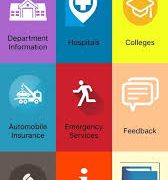Nikhil Kashyap, Correspondent from IndiaTechnologyNews speaks to Mr. K.S. Vishwanathan, Vice President, NASSCOM elaborating on their recent IoT driven initiatives & whether if India’s IoT contribution is shaped to benefit our own country or shall we primarily cater to an international audience.
With a staggering 57% of all global software outsourced to India, our nation’s position as a leader in software is well understood. However, the collective focus of the globe has now shifted away from viewing hardware and software as disparate entities. A world of convergence is now upon us. In such a world, India must surely leverage its strengths as the leader of one side of the technology coin.
The initiative that Mr Vishwanathan is referring to is a newly launched Centre of Excellence for the Internet of Things revolution. But the launch of this particular centre is only a precursor to larger schemes up ahead. Six more centres of excellence are due to follow with the Bangalore branch serving as pilot. The three vital stakeholders in this initiative, i.e. Government, Academia and Industry will be represented by their respective umbrella organizations – DietY, ERNET and NASSCOM respectively.
The initiative will function on a PPP model (Public Private Partnership) in order to mesh the strengths of government systems and machineries, and the implementation muscle of the industry. This modus operandi has worked well in the past. The National Skill Development Corporation, established four years ago to skill 50 million people for the international IT market, is one such example. The Software Technology Parks of India, established in 1991 is another such example.
However, even though the domestic market has grown in all sectors, the IT industry continues to be largely outsourcing based. Will India’s efforts to establish itself as an IoT world leader benefit our own country or will we cater primarily to an international audience? Hearteningly, the answer seems to be pointing to the former. One of the key differences as we approach the task of designing the IoT space, is our treatment of government as a segment. Initiatives such as Digital India and the Smart City program point towards a potentially strong and healthy domestic market. NASSCOM will play a lead role in assisting corporations to adapt to government as a segment.
The argument stands to be made that a dialogue on the Internet of Things in an Indian context is perhaps a case of counting one’s chickens before the eggs are hatched. In this case the lack of internet penetration would be the primary unhatched egg. The situation is further exacerbated by the fact that several IoT use cases would be placed in rural settings. Consider a smart healthcare system where remote sensors measure a patient’s vital metrics or a smart agriculture system which utilises similar sensors to compute optimal fertilization or harvest times. All of these require a basic threshold of connectivity which is currently lacking in the required environments.
Mr Vishwanathan approaches the question differently. He believes that as availability of these applications increase, the back demand pressure will in turn drive infrastructure growth. In a sense, this phenomenon has already been demonstrated on more than one occasion. Mobile data speeds and spectrum are discussed now more than ever before, due to the wealth of available applications. Ecommerce in particular has been a major driving force. Similarly, this phenomenon can also be seen in the aviation sector.
If it is true that India will be a key consumer of IoT goods, then it follows that our country must participate in the global dialogue on the subject, certainly in terms of creating standards etc. According to Mr Vishwanathan, this will in turn allow for easier adoption of these standards to an Indian context.







